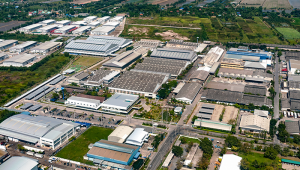26 November 2004
Millions of pounds in public subsidies may have been gifted to overseas firms that exaggerated regional job creation plans when investing in the UK, the author of a new study has claimed.
But the Northeast's regional development agency (RDA), One North East, has moved to quell fears that international firms could still receive more taxpayers' cash than they should when setting up plants in Britain.
It follows the publication of a report by Newcastle Business School, part of the city's university, which claims that some foreign firms that opened factories in the Northeast between 1985 and 1998 knowingly exaggerated job creation schemes to attract government aid.
Study author Dr Colin Wren said development agencies accepted promises made by international investors because it improved their own job creation figures, but the targets were 'rarely met'.
Wren also claimed that his findings were likely to be replicated across other RDAs, sparking fears that foreign firms received tens of millions of pounds in public subsidies for jobs they never intended to create. RDAs currently pay out around £500m per year in public aid.
'There are no incentives for RDAs to check on job creation numbers,' Wren warned.
He found that new plants in the Northeast promised a total of 48,825 jobs over the period, but created just 34,164 posts.
However, he said there was no evidence that the RDA and investors from the US, Far East and Asia had colluded over the figures.
Individual firms are not named in the report, but one form of grant aid for which many qualified, Regional Selective Assistance, was scrapped by the Department of Trade and Industry last year in favour of a new, closely monitored alternative: Selective Finance for Investment.
A DTI source told Public Finance there had been concerns over some job creation plans, but said it was difficult to judge whether any company had intentionally created fewer posts. Many firms had met their job creation plans, the source added.
A spokesman for One NorthEast said it was now unlikely that firms could exaggerate figures without alerting the RDA or the DTI. 'Around half of the people employed in the region work for foreign companies, so their importance cannot be overstated,' he said.
'Provision exists within all grant aid offers to withhold payment if the company does not reach phased targets for job creation and "clawback" exists to recoup money from companies which fail.'
PFnov2004



















